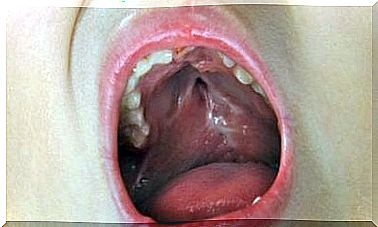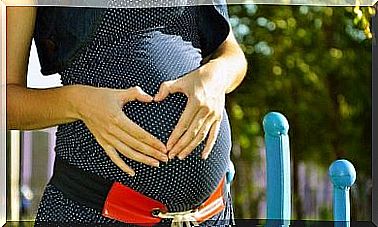What Are The Causes Of Postpartum Preeclampsia?

Postpartum preeclampsia is one of the most sensitive medical conditions a woman can experience. Although not common, it is important to take the appropriate precautions.
Women also need to know how to recognize the symptoms of postpartum preeclampsia so that they can get the right treatment as soon as possible.
The symptoms can occur immediately after birth and can last up to one to three months.
To begin with, we need to define postpartum preeclampsia as a disease involving high blood pressure. The same thing can happen during pregnancy – in other words before birth.
It is important to clarify that this disorder requires immediate treatment to avoid the risk of cardiovascular complications. Among these problems we can mention damage to the blood vessels and veins, as well as long-term heart conditions.
Signs and symptoms of postpartum preeclampsia
- Sudden increases in arterial pressure. In case of high blood pressure we refer to readings equal to or higher than 140/90.
- An excessive concentration of protein in the urine (more than 300 mg).
- Sudden or temporary loss of vision. Women may also experience hypersensitivity to light, weakness, fatigue, and altered states of consciousness.
- Sudden and remarkable weight gain. For example, half to a whole kilo a week despite eating a healthy diet. Nausea and vomiting may also occur.
- Swelling of the extremities and face.
- Stomach pain.
- Painful breathing.

Causes of postpartum preeclampsia
Doctors and researchers have still not reached agreement on a definitive cause of this disorder. The most realistic explanation is that postpartum preeclampsia occurs in women who suffer from preeclampsia during pregnancy – even without knowing it.
Another factor that may have to do with the incidence of postpartum preeclampsia is a family history of the same medical condition.
Other risk factors include the following:
- An increase in blood pressure after the 20th week of pregnancy.
- Pregnancy occurring in women under 20 or over 40.
- Obesity or excessive weight.
- Multiple pregnancies.
Complications and risk factors
- This condition has symptoms reminiscent of those of preeclampsia. The primary difference is that it can cause episodes of seizures and definitive damage to vital organs, such as the brain and kidneys. In the worst cases, postpartum preeclampsia can be fatal or lead to a comatose condition.
- Blood clots in the lungs. This disease consists of the emergence of two conditions at the same time: venous thrombosis and pulmonary embolism. When this condition occurs, people will have difficulty breathing, have chest pain, fever and are unable to live a normal life.
- Pulmonary edema. It is a disease that drastically affects the respiratory system. It consists of the accumulation of fluid in the internal tissues and the cavities of the lungs. It is identified by the secretion of blood during coughing, anxiety, excessive sweating and difficulty breathing in and out.
Diagnosis and treatment
- Blood tests. Blood tests help reveal if the liver and kidneys are functioning normally. They also verify that a woman has a normal number of platelets. These cells regulate the coagulation of the circular system and it can save one’s life in case of bleeding.
- Urine sample. This type of test will indicate the concentration of protein in women’s urine. A concentration of more than 300 mg is a warning sign.

When it comes to treating postpartum preeclampsia, it is important to emphasize that it generally requires the use of medication. Treatment should focus on avoiding seizures, reducing blood pressure and normalizing the composition of the urine.
Now you know how to identify the symptoms of postpartum preeclampsia and what the consequences are of ignoring them. Women’s bodies are more vulnerable after a birth. That is why it is so important that we pay attention to what our body is telling us.
Your health needs to be a priority so you can take care of your child and your family.









